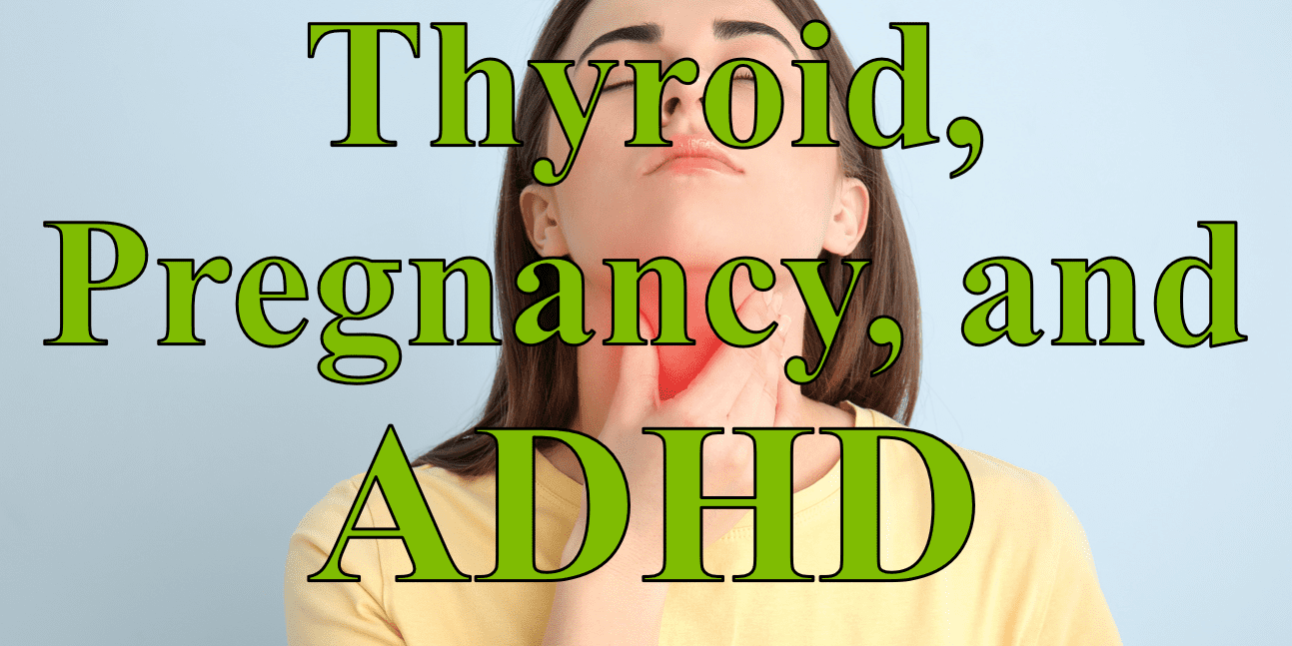Everyone wants to know why almost 1 in 10 children now have been diagnosed with ADHD, affecting their lives and the lives of their families. Numerous theories ask if some exposure or deficiency during pregnancy could be influencing brain development negatively. Toxins, deficiencies, infections, and various forms of inflammation are also implicated. As with autism, we likely cannot identify one factor as the individual cause because of how many paths likely lead to ADHD. In this study, researchers investigated whether hypothyroid in the mom during pregnancy could contribute and found connections worth further study.
With Attention Deficit Hyperactivity disorder on the rise affecting in some estimates close to 10% of today’s children from 2 to 17 years old, no one can seriously argue that we don’t have a problem. Some have tried to say that we are just diagnosing more of what has always been there similar to autism, but the prevalence and the costs of ADHD care put these deniers in the minority. Adult-sufferers and the parents of children with ADHD recognize the lifelong impact of this condition. Several studies noted in the focus paper paint a frustrating picture.
With the known connection of hormones like thyroid with the development of children in the womb as well as past observational studies suggesting some impact of the thyroid, these researchers wanted to definitely confirm the connection. While prior studies often looked at ethnically homogenous European groups through national health registries, this study looked at over 500,000 children from varied ethnicities using a Kaiser Permanente registry in California. They used data from the mother’s pre-existent or new diagnoses of hypothyroidism during pregnancy and compared whether their children developed ADHD over the succeeding years as documented in the Kaiser system.
After the usual adjusting and cleaning up statistical data to limit the risk of confounding variables, they reported that a diagnosis of hypothyroid in the mother before or during the first trimester of pregnancy increased the risk of AHD in the child by a factor of 1.24 with a confidence interval of 1.14 to 1.35. This means that 1.24 times more children developed ADHD if their mother had that diagnosis of hypothyroidism. Interestingly, untreated or very low doses of thyroid medications showed no increase in ADHD while those treated with more than 50 mcg of thyroxine had an increased risk.
How can we account for only the untreated or minimally treated cases having a lower rate of ADHD than the more aggressively treated? Obviously, there is more happening here than just low thyroid. There may be a factor causing more the low thyroid and the ADHD which is at play. Some are likely getting too much of a good thing. After all, other studies noted in the paper’s introduction found that hyperthyroidism could increase the rate of ADHD as well. Our bodies like things in the middle of the road.
This leaves us needing to continue investigation and proceed cautiously with thyroid therapy in the pregnant patients we see or in those who might become pregnant while on therapy for hypothyroid. ADHD prevention is not the only reason for properly managing thyroid disease in pregnancy. Preterm birth appears more commonly in hypothyroid moms. The low thyroid can make fertility more difficult and can contribute to a multitude of other symptoms in the mom herself. Our goal is to keep mom in a proper balance of thyroid throughout the pregnancy even if the ADHD effect seems confined to the first trimester.
With all the debate noted in the paper as some studies suggest an effect and others deny hypothyroid effects on future ADHD, we should proceed with caution in applying what we do know. Appropriate doses of thyroid medicine in child-bearing age women and in women during pregnancy is important for a number of reasons besides this question of ADHD risk. We would add that the hormonal needs fluctuate during the pregnancy and require more frequent lab checks. With care, our patients can finish healthy pregnancies on thyroid support, so that they and their children can liver healthier, more abundant lives.
Original Article:
Morgan R. Peltier, Michael J. Fassett, Vicki Y. Chiu, Darios Getahun. Maternal Hypothyroidism Increases the Risk of Attention-Deficit Hyperactivity Disorder in the Offspring. American Journal of Perinatology, 2020 DOI: 10.1055/s-0040-1717073
Thanks to Science Daily:
NYU Langone Health / NYU School of Medicine. “Hypothyroidism in pregnant mothers linked to ADHD in their children.” ScienceDaily. ScienceDaily, 21 October 2020. <www.sciencedaily.com/releases/2020/10/201021085107.htm>.
Sanctuary Functional Medicine, under the direction of Dr Eric Potter, IFMCP MD, provides functional medicine services to Nashville, Middle Tennessee and beyond. We frequently treat patients from Kentucky, Alabama, Mississippi, Georgia, Ohio, Indiana, and more... offering the hope of healthier more abundant lives to those with chronic illness.







